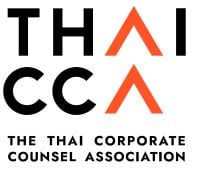
Senior Manager, FinTech, Legal | Agoda






Siriarphar Renata Landolt
Senior Manager, FinTech, Legal | Agoda
What are the most significant cases or transactions that you have recently been involved in?
Working in the legal department of a major tech company like Agoda necessitates agility and rapid iteration. Over the past year, I have provided srategic legal counsel on financial products that are not only compliant but also buildable, operational, commercial, and scalable because Agoda is available to bookers globally. One of the standout aspects of my role is the immersive experience of creating new products with the Agoda team. The FinTech Legal Team’s involvement begins at the brainstorming phase, where we contribute to the business case, right through to the UI/UX design stage. Additionally, we are quick to act when things don’t go as planned. This includes addressing fraud attacks, responding to regulator inquiries, and managing booker complaints.
Helping the company grow also means enhancing payment experience. Whether this is by negotiation and review of contracts to onboard new payment service providers in order to expand our payment coverage globally so bookers can pay in their preferred method but also so that our travel service suppliers can receive payment how, when, and in their preferred currency.
How do you motivate and manage your legal team well?
People are individuls, and while general motivation methods can yield results, I believe that effectively motivating someone and developing them into a high-performing team member requires a manager to invest time and effort in understanding each team member’s personal preferences and values. I start with myself: I despise micromanaging. It is a management technique that effectively kills strategic thinking, proactivity, and independent thought—all attributes I aim to foster in my team. Therefore, I do not micromanage. I place a high value on trust, recognizing that it is a two-way street. I trust my team to do their job, and I hope they trust me to do mine. I begin everyone (at the same job category) with the same set of vague instructions, timeline, and my expectations. I then adjust my management style based on their output and seek immediate, direct feedback on their experience: Why did you approach it this way? How could I have improved my communication? What could I have done to help you work more effectively?
Receiving feedback is a cornerstone of how I manage my team because it makes sense to listen to the people I am responsible for. While receiving occasional negative feedback can be challenging, I frame it as constructive and focus on these areas the most, as addressing them offers the highest ROI. Moreover, I always make myself available to my team as an escalation point, for brainstorming ideas, and for emotional support. By fostering an environment where my team can thrive, I cultivate strong, motivated individuals who work together as a high-performing team.
Are the effects of AI on the legal world overplayed, or underplayed?
I believe the effects of AI on the legal world are underplayed. While AI is still in its early stages, it has the potential to significantly enhance our work. AI should be integrated as a tool to make routine tasks more efficient. For example, AI can comb through decades of case law to identify relevant precedents or review all contracts a company has signed to identify those still in effect, due for renewal, or containing outdated data privacy clauses. Legal work is inherently detail-oriented, and AI has proven capable of enhancing accuracy by reducing human errors in document review and data entry. Imagine the energy junior associates could have devoted to learning negotiation tactics if they weren’t burning the midnight oil re-formatting contracts.
However, AI tools like Harvey do have their limitations. While they excel at handling routine tasks and enhancing efficiency, they currently lack the ability to make complex judgments that require deep understanding, context, and empathy—an essential aspect of legal work. The effectiveness of these AI tools also depends heavily on the quality of the data they are trained on, and poor-quality data can lead to inaccurate or biased outcomes. Additionally, over-reliance on AI can lead to unrealistic expectations and potential compliance issues, as continuous human oversight is necessary to ensure accuracy and ethical use.
Despite these limitations, there is undoubtedly a place for AI in the legal profession. AI can support legal professionals and democratize access to legal services by providing affordable solutions to individuals and small businesses previously unable to afford quality legal assistance. By leveraging AI to handle routine tasks, legal professionals can focus on more complex and strategic aspects of their work, ultimately enhancing their ability to serve clients effectively.